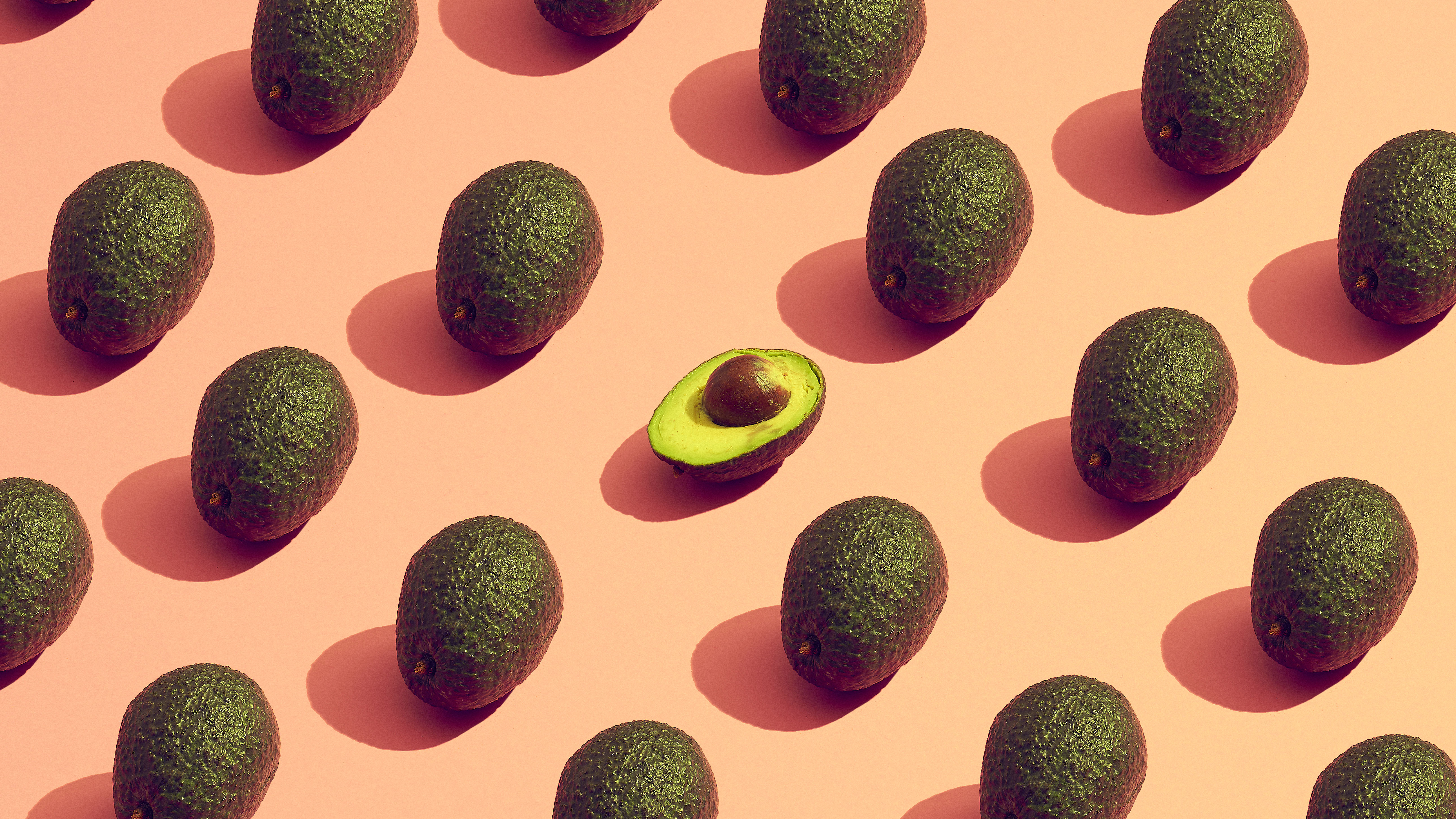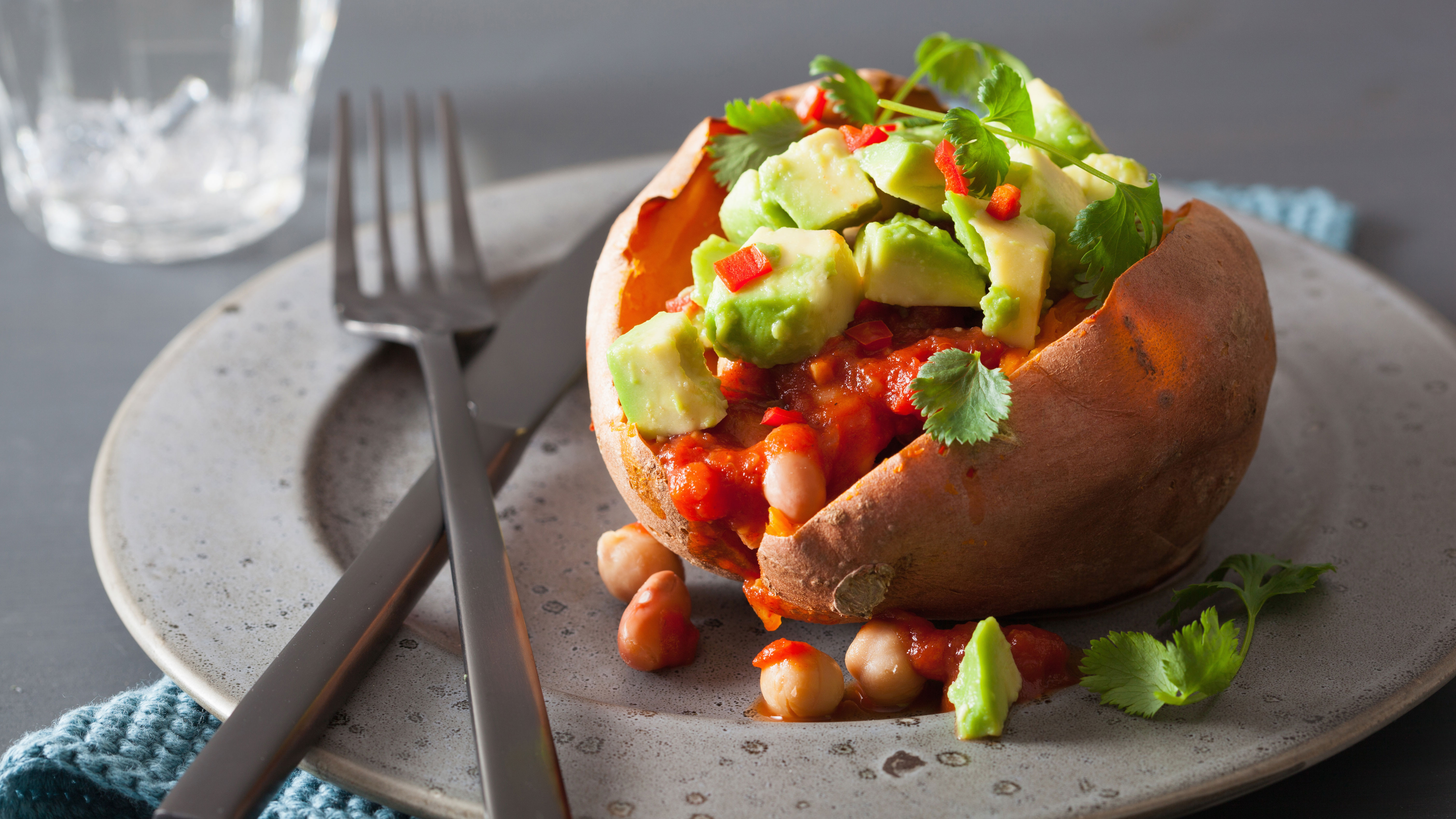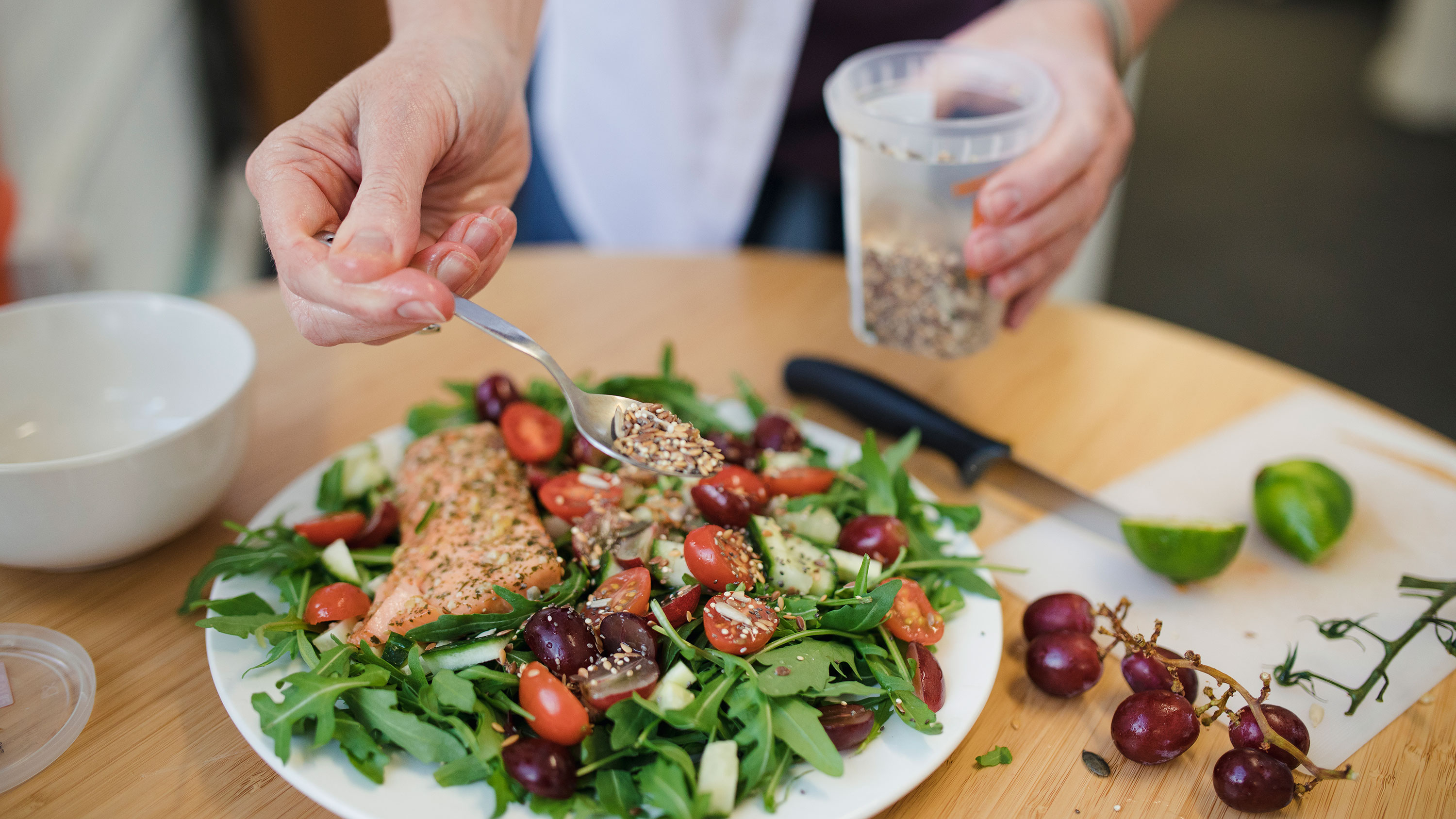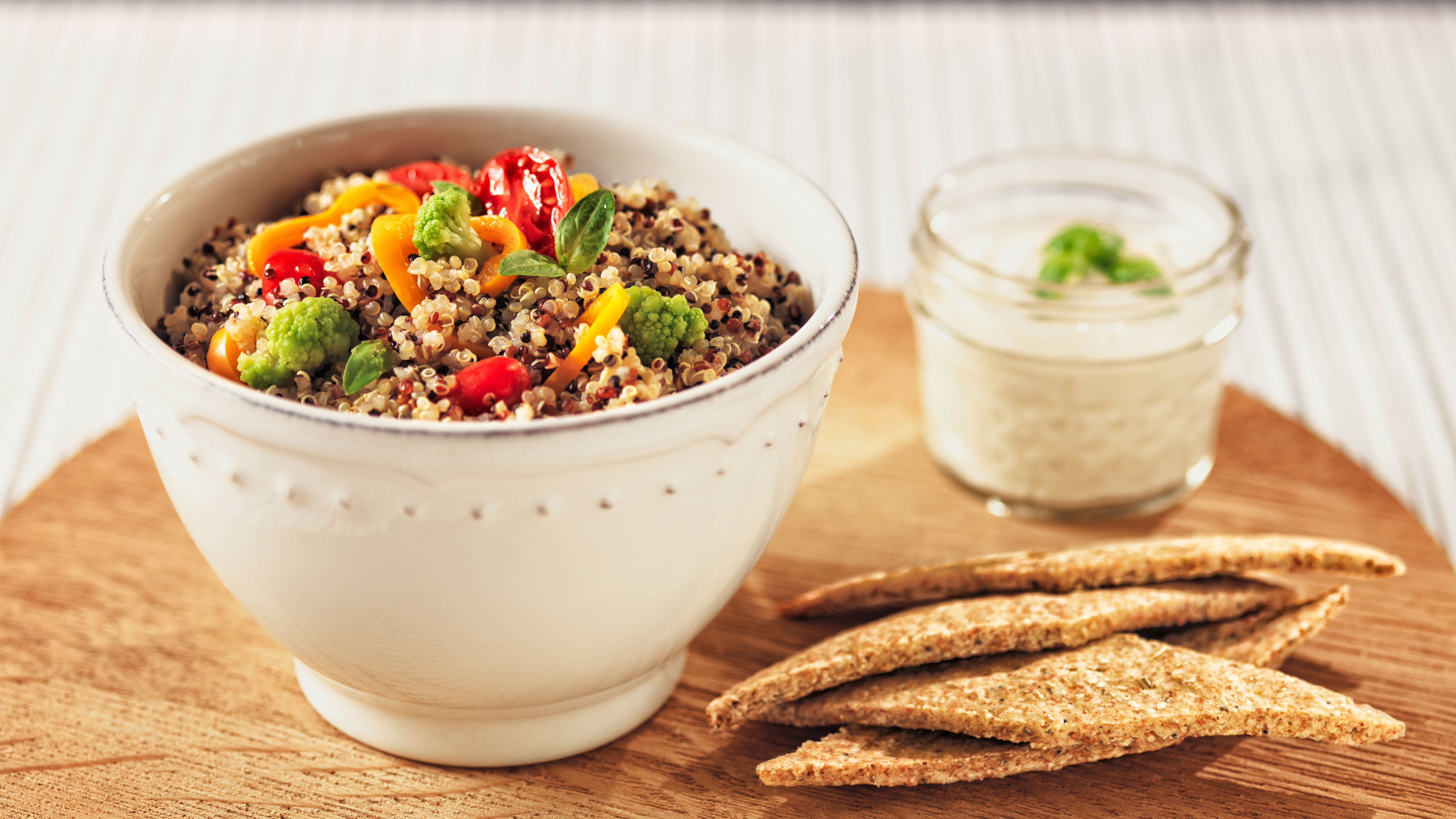What are the healthiest foods? A complete guide to help you eat healthily
Boost the way you look and feel with our expert guide to the healthiest foods you can eat


Assessing what you're eating and building the healthiest foods into your diet has never been more important, with the rise of dietary illnesses from diabetes to heart disease.
Macronutrient and micronutrient food groups form a healthy, balanced diet. Macronutrients include protein, fat and carbohydrates, and the term ‘macro’ means that we need these food groups in the diet in high amounts to stay healthy.
Meanwhile, micronutrients include vitamins and minerals, and these are obtained in much smaller quantities to protect and maintain our overall health.
Foods often contain different ratios of macro and micronutrients. For example, a beef steak is higher in protein than it is in fat, but steak will also contain a variety of micronutrients such as vitamin B12. Therefore, we don’t just gain one nutrient from one sole food; instead, all foods pack a plethora of nutrition and can vary in their macro and micronutrient profiles.
There are common misconceptions surrounding macronutrients in particular, such as many fearing carbohydrates or fats and labelling them the ‘dietary devil’. This article will explore protein, carbohydrates and fats and discuss the healthiest foods in each of these food groups that you should be consuming to achieve a healthy, balanced diet.
Carbohydrates
You may have heard that carbohydrates (or 'carbs') are bad for you, however it is worth knowing that this isn’t necessarily the case. That's because not all carbs are created equally.
There are two different types of carbohydrates: simple carbs and complex carbs.
Start your week with achievable workout ideas, health tips and wellbeing advice in your inbox.
Simple carbohydrates
Simple carbohydrates include foods such as cakes, biscuits and fizzy drinks, composed of very little fibre and high in simple sugars. This means that these types of foods are easily digested and can spike blood sugar levels very quickly.
When blood sugar spikes, so does the hormone insulin, which can also act as a fat storage hormone. Therefore, regularly eating foods that are high in refined carbohydrates can lead to weight gain, obesity and increase our risk of type 2 diabetes.
Simple carbs should form a very minimal part of your diet and we should be looking to avoid these types of foods as much as possible.
Complex carbohydrates
Complex carbs, on the other hand, include wholegrains, legumes and starchy vegetables such as potatoes and sweet potatoes. These types of carbs contain a wealth of fibre, which slows down the release of sugars into the bloodstream. Complex carbs are therefore extremely beneficial in the diet and can contribute to improved metabolic markers, digestive regularity and reducing the risk of weight gain.

Sweet potatoes and legumes such as chickpeas are a good source of complex carbs
It is also worth understanding that carbohydrates play a role in serotonin production (serotonin is a brain chemical responsible for feelings of happiness), so including some amounts of complex carbs can ward off mood swings and feelings of depression.
Typical dietary recommendations include 300 grams of carbs per day for an adult eating a 2,000 daily calorie diet. However, it is important to note that this can vary depending on the individual’s energy requirements and lifestyle.
Healthy sources of complex carbohydrates
- Wholegrains such as oats, quinoa and brown rice
- Vegetables such as sweet potatoes, potatoes, parsnips, pumpkin, beetroots
- Legumes such as lentils, butter beans, chickpeas, kidney beans, green peas
Fat
There is the common misconception that eating fat will make you fat. However, the truth is that your body needs fat to source essential fatty acids which the body cannot produce itself. We require fatty acids in order to absorb vitamin A, D, E and K which are fat-soluble nutrients. This means these vitamins can only be absorbed with fat in the diet. However, we can opt for the more health-promoting fats because, much like carbs, not all fat is created equally.
Dietary fat can be broken down into the following categories:
Trans fats
When it comes to the unhealthier fats, you should avoid industrial trans fats where possible. This is because trans fats are responsible for increasing your ‘bad’ cholesterol and lowering your ‘good’ cholesterol, which can lead to increased risk of heart disease and drive inflammation in the body. Industrialised trans fats are formed when vegetable oils are chemically altered so that they can remain solid at room temperature as a means to extend their shelf life. Examples include margarine and vegetable shortening.
Saturated fat
Whilst saturated fat was often deemed to be one of the main dietary culprits to drive high cholesterol, recent research has turned this on its head and discredited the causal link between the two. Whilst saturated fat may not pose as much of a threat to our heart health as once thought, it still isn’t out of the woods just yet, especially when paired with a Western diet high in refined carbohydrates. Therefore, it is wise to reduce your intake to no more than 10% of your total daily calories (e.g. 20g of butter or coconut oil daily). Include healthy sources of saturated fat such as coconut and grass-fed beef and combine this with a diet free of added sugars, and you will be well on your way to better heart health
Unsaturated fat
Unsaturated fat can be categorised into monounsaturated fats (including nuts and seeds, olives and avocados) and polyunsaturated fats (including omega-3 foods such as oily fish, chia seeds, walnuts and sunflower oil, which are packed with essential fats). We should aim to increase our consumption of unsaturated fats, particularly the monounsaturated fat and omega-3 varieties, which can help to decrease our risk of heart disease and counter inflammatory processes within the body.
It is recommended that those following a 2,000-calorie daily diet should consume approximately 70g of fat per day, with an emphasis on consuming mostly unsaturated fats.
Healthy sources of monounsaturated fat
- Avocados
- Nuts such as almonds, cashews, pecans and peanuts
- Olive oil

Avocados are a great source of monounsaturated fat
Healthy sources of polyunsaturated fat
- Fatty fish such as mackerel, salmon, sardines, anchovies and herring
- Walnuts
- Flaxseeds
- Pumpkin, sunflower and sesame seeds
- Tofu

Try adding seeds to a salad
Protein
Protein makes up every single cell in your body and is used to help generate new cells as well as repair them. Protein also forms our antibodies, hormones, hair and skin, as well as muscle tissue. It also helps us to feel fuller for longer and regulate appetite and blood sugar levels.
Many believe that those who decide to adopt a vegan diet will be deficient in this macronutrient, since many high-protein foods are sourced from animal origin (such as cheese, milk, eggs and meat). However, vegans can still meet their daily protein requirements, if they plan their diet carefully.
Protein is widely available in meat, fish, dairy as well as plant-based sources such as soy, nuts, seeds, legumes and grains.
Protein requirements are 0.8 grams of protein per kilogram of body weight, which increases to approximately 1g per kilo of body weight in active individuals.
Healthy vegan sources of protein
- Tofu
- Edamame
- Beans
- Chickpeas
- Quinoa
- Almonds
- Sunflower seeds
- Lentils

Quinoa is a good vegan source of protein
Healthy non-vegan sources of protein
- Eggs
- Fish
- Yoghurt
- Cheese
- Red meat
- Chicken and turkey
Lauren Windas is a registered nutritionist & naturopath, a co-founder of ARDERE, a private nutrition clinic, and a Master Practitioner in Eating Disorders & Obesity. She works individually with clients in her private clinic to assess their nutrition and long-term health goals, with a particular focus on helping those with chronic illnesses.
